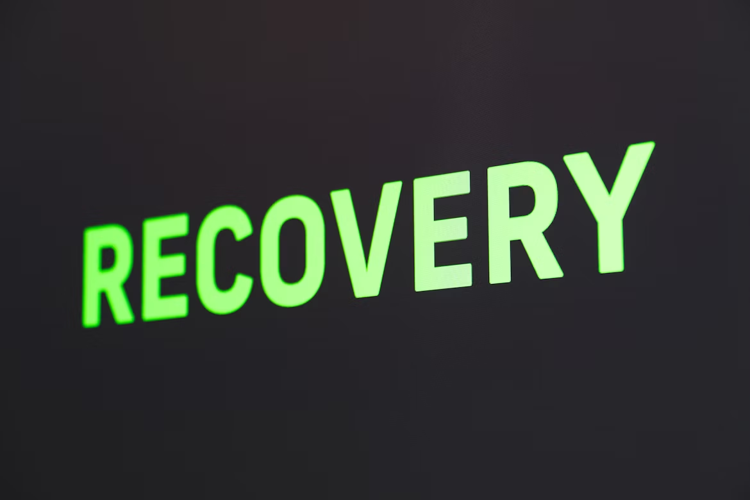Letting go of alcohol can feel like a major shift in a person’s daily rhythm. Many who step away from drinking begin to experience unexpected changes in their mental, physical, and emotional state. These benefits tend to build over time, with the early weeks being the most dramatic for some. From better sleep to stronger relationships, the experience of living alcohol-free reaches into nearly every part of life. What begins as a simple decision to pause or stop drinking can quickly lead to deep, visible improvements in well-being.

Physical Clarity and the Detox Experience
The first days without alcohol often bring a noticeable shift in the body. For those who have been drinking regularly, the process of withdrawal can be uncomfortable or even dangerous without the right support. That’s where a complete guide to alcohol detoxification becomes relevant in helping people prepare for what to expect. Detoxification involves clearing the body of alcohol and starting the process of physical repair. This stage can take a few days to a couple of weeks, depending on various factors like how long a person has been drinking and how much they consumed.
Once past detox, many report better digestion, clearer skin, and more stable energy levels. The bloating that often accompanies drinking begins to fade. Hunger cues return to normal, which can help with more balanced eating habits. People often describe the feeling as “waking up” in their own body again. The fog that seemed constant begins to lift, and daily movement becomes easier. Breathing can feel deeper, and even a walk around the block starts to feel more refreshing. These physical shifts are not just the absence of alcohol; they’re the beginning of a new baseline for health.
Improved Mental Health and Emotional Balance
Many notice that their mood begins to level out after stopping alcohol. Without the regular spikes and crashes brought on by drinking, emotional reactions tend to become less intense. Moments that once triggered stress or irritability might still be present, but people often report feeling more equipped to handle them. Anxiety that was previously masked or heightened by alcohol often becomes more manageable over time.
Sleep plays a key role here. With more restful nights, the mind is better prepared to process challenges during the day. Dreams may become more vivid, and the constant fatigue that follows many drinkers begins to ease. Over several weeks or months, some find their thinking becomes sharper. They can focus longer and make decisions with greater confidence.
Therapy and peer support are common during this time, and many find those tools more effective once alcohol is out of the picture. Conversations with loved ones tend to be more open and less reactive, which feeds back into better emotional balance.
Deeper Connections and Social Shifts
Leaving alcohol behind can reshape relationships. Some friendships may grow stronger, built on deeper understanding and more honest communication. Others might fade, especially if they were centered around drinking. While this change can feel difficult at first, it often opens space for new connections that are more aligned with a person’s goals and values.
Trust can begin to rebuild in strained relationships. Partners and family members often notice the difference, not just in behavior, but in presence. Being fully present in conversations, showing up on time, and remembering details; these small things can mean a lot to others.
Social events might take on a new tone. Some feel awkward in settings where alcohol is front and center, but over time, comfort tends to return. Many people report finding new communities or interests that don’t revolve around drinking. Others say they learn how to enjoy old settings in new ways, often with more authentic interaction.
Sharper Finances and Everyday Choices

One of the more practical but often surprising benefits of leaving alcohol behind is how quickly spending habits change. Alcohol isn’t cheap, and for those who drink often, the savings add up fast. From nights out at bars to casual drinks picked up with groceries, cutting out alcohol leaves a noticeable gap in weekly expenses.
But it’s not just about what’s saved; it’s about how that money gets used. Some people report having more resources for hobbies, travel, or better food. Others feel more in control of their financial future, able to make decisions with a clearer head and steadier priorities. The fog of impulsive spending that often comes with drinking begins to lift.
There’s also a growing awareness of choices in other areas. Many start to question old habits, not just with money, but with time, food, or digital use. Without the numbing or distracting effects of alcohol, decisions begin to reflect longer-term goals. That shift can be subtle at first, but often becomes one of the more powerful long-term changes.
Rediscovery of Interests and Energy
Many people are surprised by how much time opens up once alcohol is no longer part of their day. Evenings once spent recovering from a hangover or nursing a drink are now free for other things. Energy that was once drained by drinking and recovery cycles starts to return.
This is when people often reconnect with activities they once loved, or try something new entirely. Art, exercise, cooking, reading, or volunteering become ways to fill the space that used to be dominated by alcohol. There’s no single path, but the common thread is this: people begin to feel more engaged with the world around them.
Physical energy often improves with better sleep and nutrition. People talk about getting up earlier without dread, feeling motivated to move, and having more stamina during the day. Mental energy tracks along with this, fewer forgotten tasks, less procrastination, and more follow-through on personal projects.
A Clearer Sense of Self
Perhaps the most profound shift comes with how people see themselves. Many report feeling more grounded in who they are, especially after the emotional rollercoaster of early recovery begins to settle. There’s a sense of learning to live in one’s skin again. Confidence builds with each sober day, not just because of what’s avoided, but because of what’s gained.
Self-trust starts to rebuild. Decisions are made with more intention. People often mention a growing sense of dignity, being able to look themselves in the mirror without guilt or second-guessing. The stories people tell themselves begin to change, from shame or regret to growth and potential.
This doesn’t happen all at once. There are ups and downs, and not every day feels like progress. But over time, the view of oneself often becomes clearer and more positive. People start to feel proud, not only of quitting alcohol, but of the life they’re building without it.
Leaving alcohol behind can lead to a wide range of benefits that stretch far beyond physical health. From clearer thinking and stronger relationships to more stable finances and a deeper sense of self, the ripple effect touches every part of life. While the early days may feel uncertain, the long-term gains often come into focus sooner than expected. For many, what begins as a difficult decision becomes the foundation for a better, more connected way of living.




(0) comments
We welcome your comments
Log In
Post a comment as Guest
Keep it Clean. Please avoid obscene, vulgar, lewd, racist or sexually-oriented language.
PLEASE TURN OFF YOUR CAPS LOCK.
Don't Threaten. Threats of harming another person will not be tolerated.
Be Truthful. Don't knowingly lie about anyone or anything.
Be Nice. No racism, sexism or any sort of -ism that is degrading to another person.
Be Proactive. Use the 'Report' link on each comment to let us know of abusive posts.
Share with Us. We'd love to hear eyewitness accounts, the history behind an article.